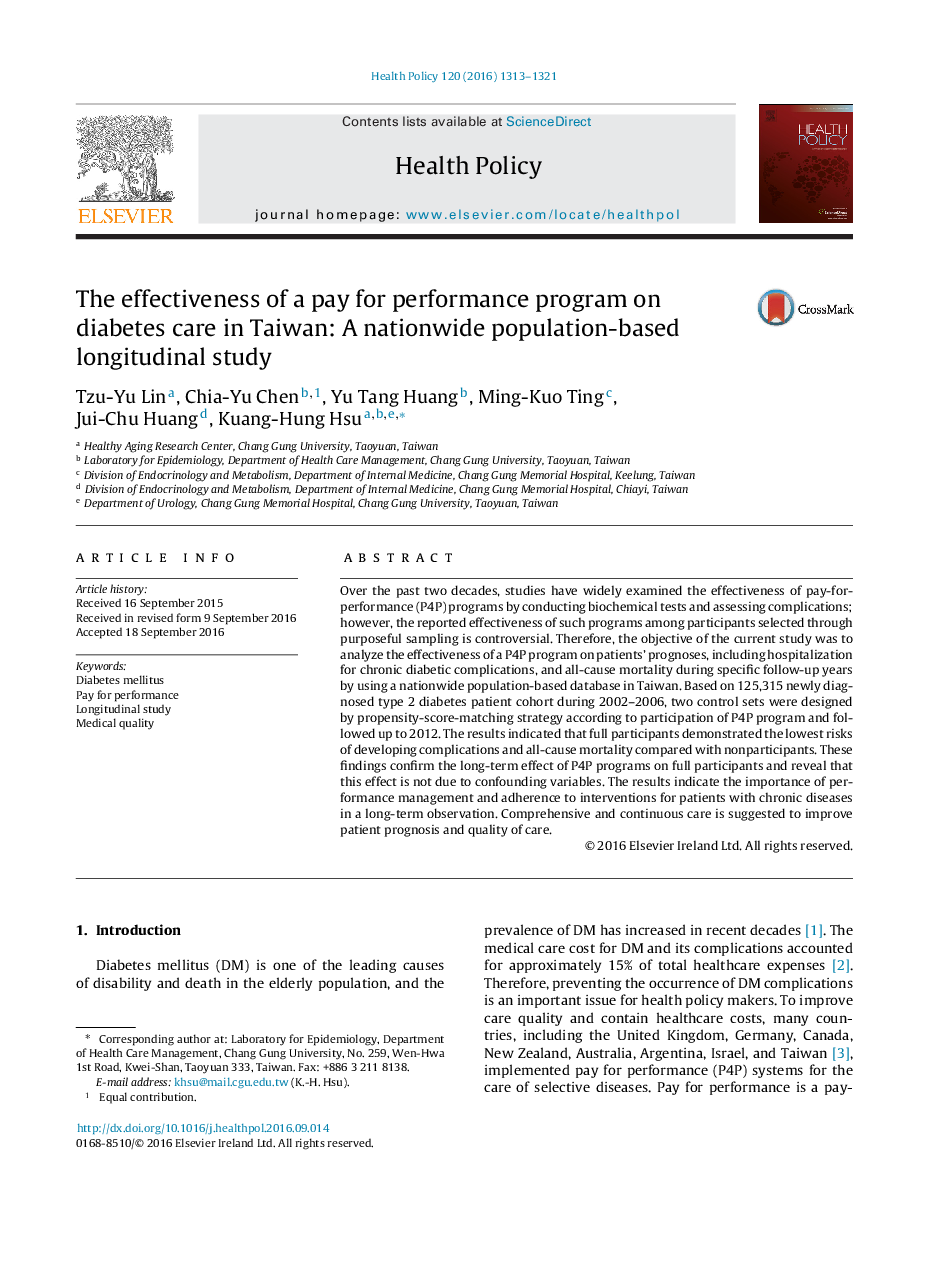| Article ID | Journal | Published Year | Pages | File Type |
|---|---|---|---|---|
| 5723434 | Health Policy | 2016 | 9 Pages |
â¢The long-term effect of P4P program on DM patient's prognoses is positive.â¢Dose-response relationship was found between level of P4P participation and mortality.â¢Provider's incentives in policy can be effective in guarding patient's prognosis.
Over the past two decades, studies have widely examined the effectiveness of pay-for-performance (P4P) programs by conducting biochemical tests and assessing complications; however, the reported effectiveness of such programs among participants selected through purposeful sampling is controversial. Therefore, the objective of the current study was to analyze the effectiveness of a P4P program on patients' prognoses, including hospitalization for chronic diabetic complications, and all-cause mortality during specific follow-up years by using a nationwide population-based database in Taiwan. Based on 125,315 newly diagnosed type 2 diabetes patient cohort during 2002-2006, two control sets were designed by propensity-score-matching strategy according to participation of P4P program and followed up to 2012. The results indicated that full participants demonstrated the lowest risks of developing complications and all-cause mortality compared with nonparticipants. These findings confirm the long-term effect of P4P programs on full participants and reveal that this effect is not due to confounding variables. The results indicate the importance of performance management and adherence to interventions for patients with chronic diseases in a long-term observation. Comprehensive and continuous care is suggested to improve patient prognosis and quality of care.
